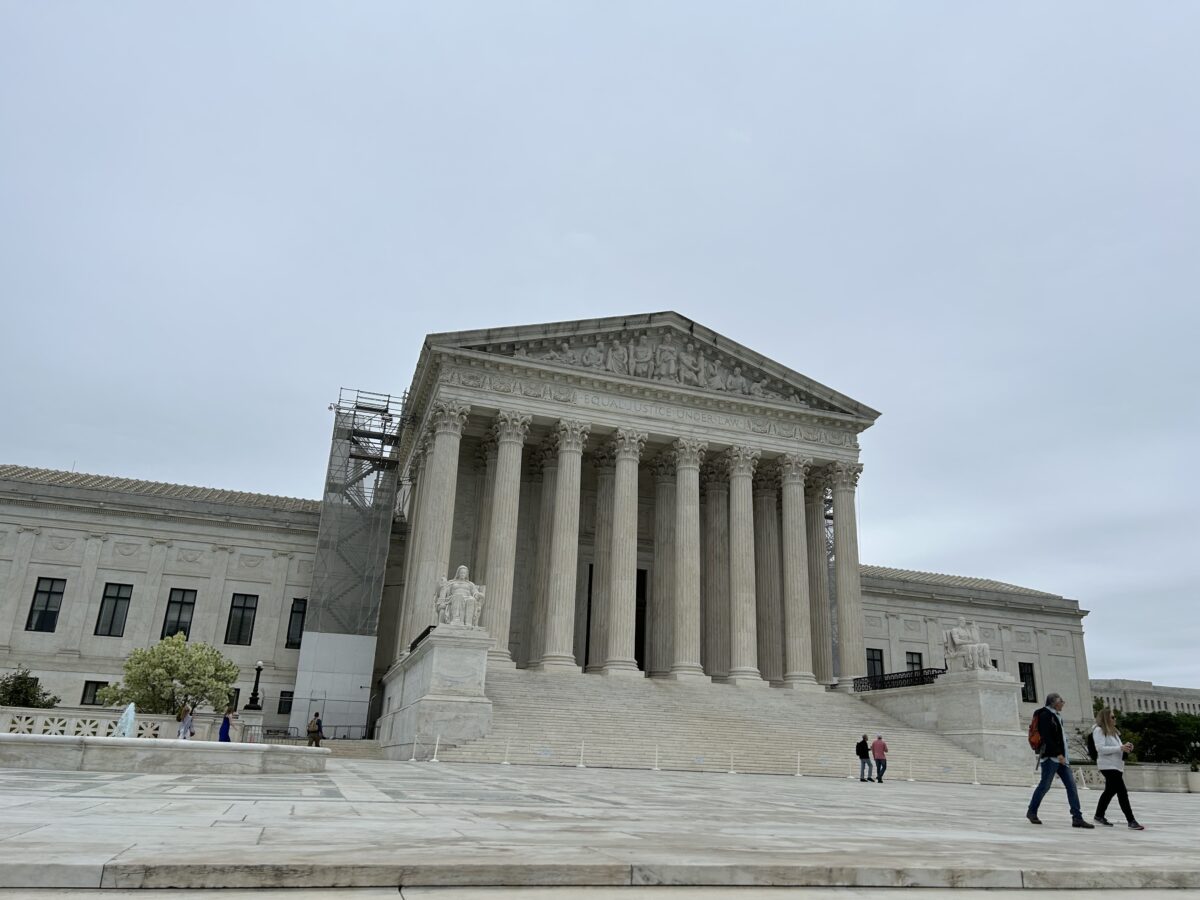One of the most consequential is Loper Bright Enterprises v. Raimondo, which overturned the 1984 Chevron deference doctrine.
This case set a precedent for the courts to defer to experts at government agencies if certain statutes that pertained to their work were ambiguous or unclear. But now, judges will exercise their own independent judgment in cases, according to David Vladeck, a Georgetown University Law Center professor and the former director of the Federal Trade Commission’s (FTC) Bureau of Consumer Protection during the Obama administration.
“Given the complexity of a lot of what agencies do, Chevron made sense,” Vladeck told Technical.ly. “The absence of Chevron just makes no sense at all, because you have generalist judges who probably know little or nothing about a lot of the complex issues federal agencies face.”
This term’s cases as a whole, including Loper, SEC v. Jarkesy and Corner Post, Inc. v. Board of Governors of the Federal Reserve System, will result in agency rulemaking becoming far more difficult, said John Heflin, the director of policy at the Rosslyn, Virginia-based AI governance software company Trustible.
When members of Congress write and pass laws, they typically don’t give clear guidance on how to implement that law, Heflin explained. Legislation is usually written with the idea that more expert bodies, like other agencies, would interpret the minutia that typically does not make it into the statute.
“What’s happening is, the Supreme Court is saying that if Congress is not being specific in how they’re writing laws, then the deference to agency expertise and agency rulemaking is not a foregone conclusion,” Heflin said. “It makes it really difficult, then, for the agencies to think about how they can promulgate rules that meet the moment of the statute but are also not going to get struck down.”
Justice Elena Kagan highlighted this issue in her dissenting opinion on the Loper case, pointing to the possibility of AI-related regulation getting sent to courts because of ambiguity that’s largely unavoidable:
‘This will be the Wild West’
When it comes to Loper and AI, Georgetown law professor Vladeck is concerned about the lack of recourse with bad actors who use AI for things like creating deepfakes to scam people, for example.
At the moment, agencies like the FTC have no explicit set of rules or guardrails at the federal level to go after people using AI to harm people, Vladeck said. It’s unlikely that this ruling will improve that, he added.
“At the moment, and maybe for quite some time, this will be the Wild West,” he said.
Another of the cases closely linked to Loper, SEC v. Jarkesy, ruled that the defendants have a right to a jury trial when the Securities and Exchange Commission (SEC) accuses them of securities fraud and seeks civil penalties. This may be translated to enforcement in other agencies like the FTC, Trustible’s policy director Heflin said.
Meanwhile, in Corner Post, the court decided that a person or business can challenge any rule for six years after they suffer an alleged injury from it. This unsettles the finalization of rulemaking, Heflin explained.
“Looking at these three cases as a whole, we’re not going to necessarily defer to the agency rulemaking process,” he said. “We’re not going to keep the enforcement piece of the rulemaking process strictly limited to the agencies. And as rules are coming out, we don’t want to limit an impacted party’s ability to sue under potential final rules.”
He added: “It really makes it difficult when you have all of these various factors at play.”
Vladeck believes it may take several years before Congress gives agencies more authority to regulate and combat deceptive practices in the wake of Loper.
There is a tinge of hope the government may act quickly.
The Biden administration’s October executive order was a good sign, said Vladeck, who also noted discussions between the executive branch and some legislators over a plan to regulate AI. These scenarios — whether at a slow pace or quick one — likely depend on the presidential election, which has been shaken up by Biden dropping out of the race and Vice President Kamala Harris stepping in. If former President Donald Trump takes office, Vladeck said he is not confident issues like privacy and AI regulation will be priorities.
In Heflin’s own opinion outside of his work at Trustible, he said the power of the executive branch may come close to a complete halt.
Two choices exist: to not make progress on rulemaking at all, or to write something so narrow that may not capture all of the possible harms at play. AI presents several high-risk use cases, like being employed in healthcare, education and human services.
There’s going to be a significant amount of litigation in the future, he said.
“Regardless of administrations, it becomes very, very difficult for agencies to write rules,” Heflin said. “This is really just the tip of the iceberg.”
Before you go...
Please consider supporting Technical.ly to keep our independent journalism strong. Unlike most business-focused media outlets, we don’t have a paywall. Instead, we count on your personal and organizational support.
3 ways to support our work:- Contribute to the Journalism Fund. Charitable giving ensures our information remains free and accessible for residents to discover workforce programs and entrepreneurship pathways. This includes philanthropic grants and individual tax-deductible donations from readers like you.
- Use our Preferred Partners. Our directory of vetted providers offers high-quality recommendations for services our readers need, and each referral supports our journalism.
- Use our services. If you need entrepreneurs and tech leaders to buy your services, are seeking technologists to hire or want more professionals to know about your ecosystem, Technical.ly has the biggest and most engaged audience in the mid-Atlantic. We help companies tell their stories and answer big questions to meet and serve our community.
Join our growing Slack community
Join 5,000 tech professionals and entrepreneurs in our community Slack today!

The person charged in the UnitedHealthcare CEO shooting had a ton of tech connections

Delaware students take a field trip to China using their tablets and ChatGPT

From rejection to innovation: How I built a tool to beat AI hiring algorithms at their own game




